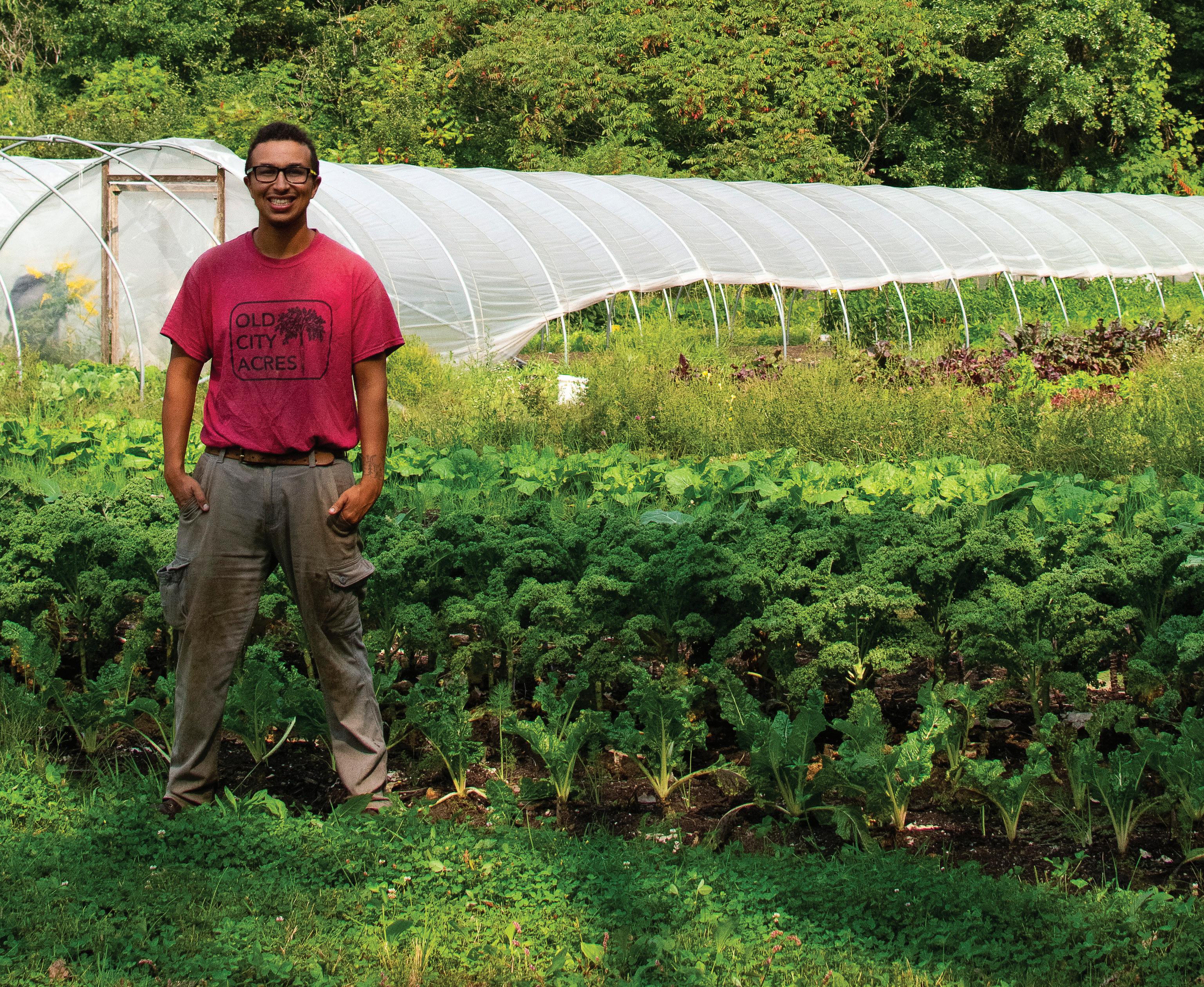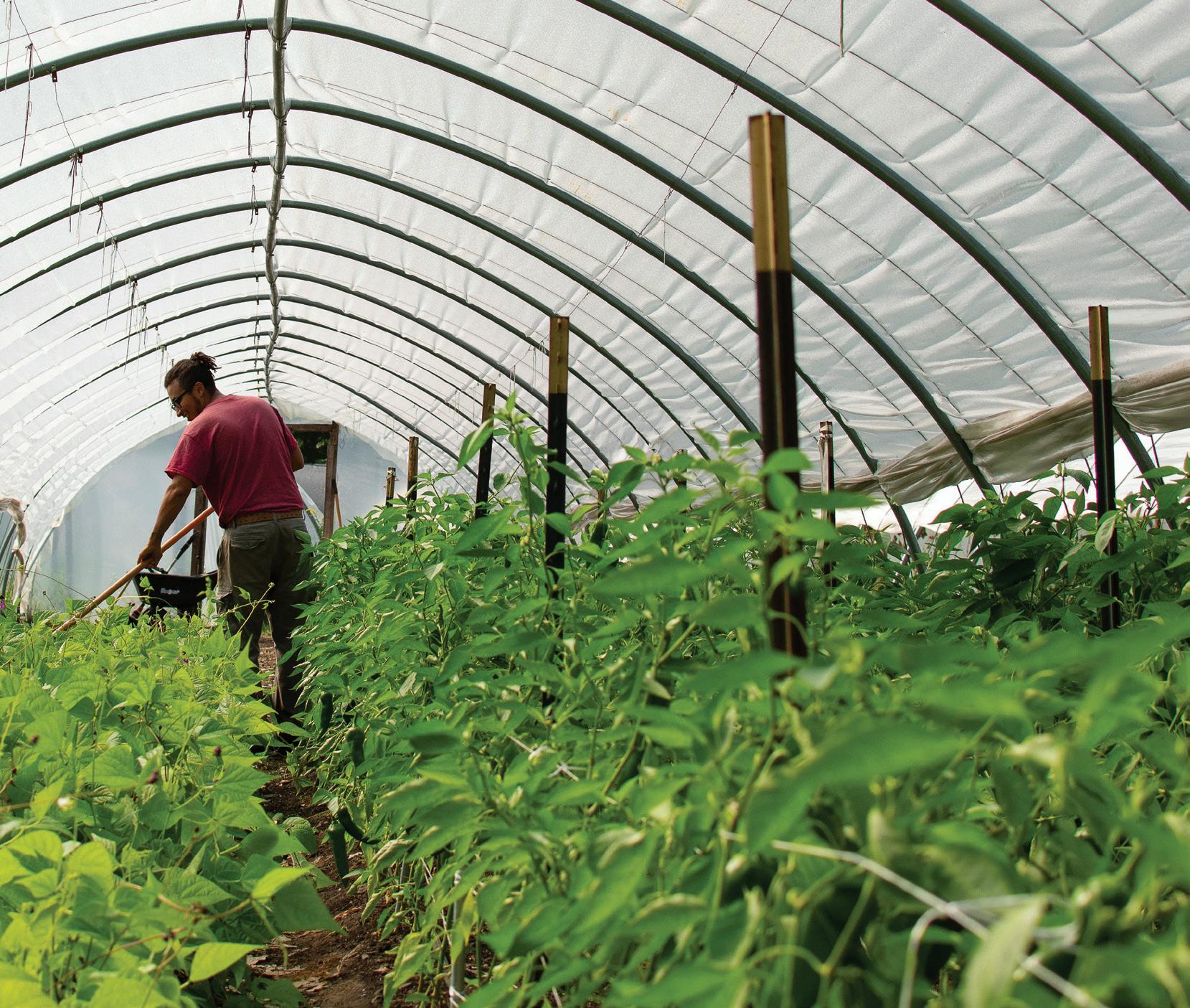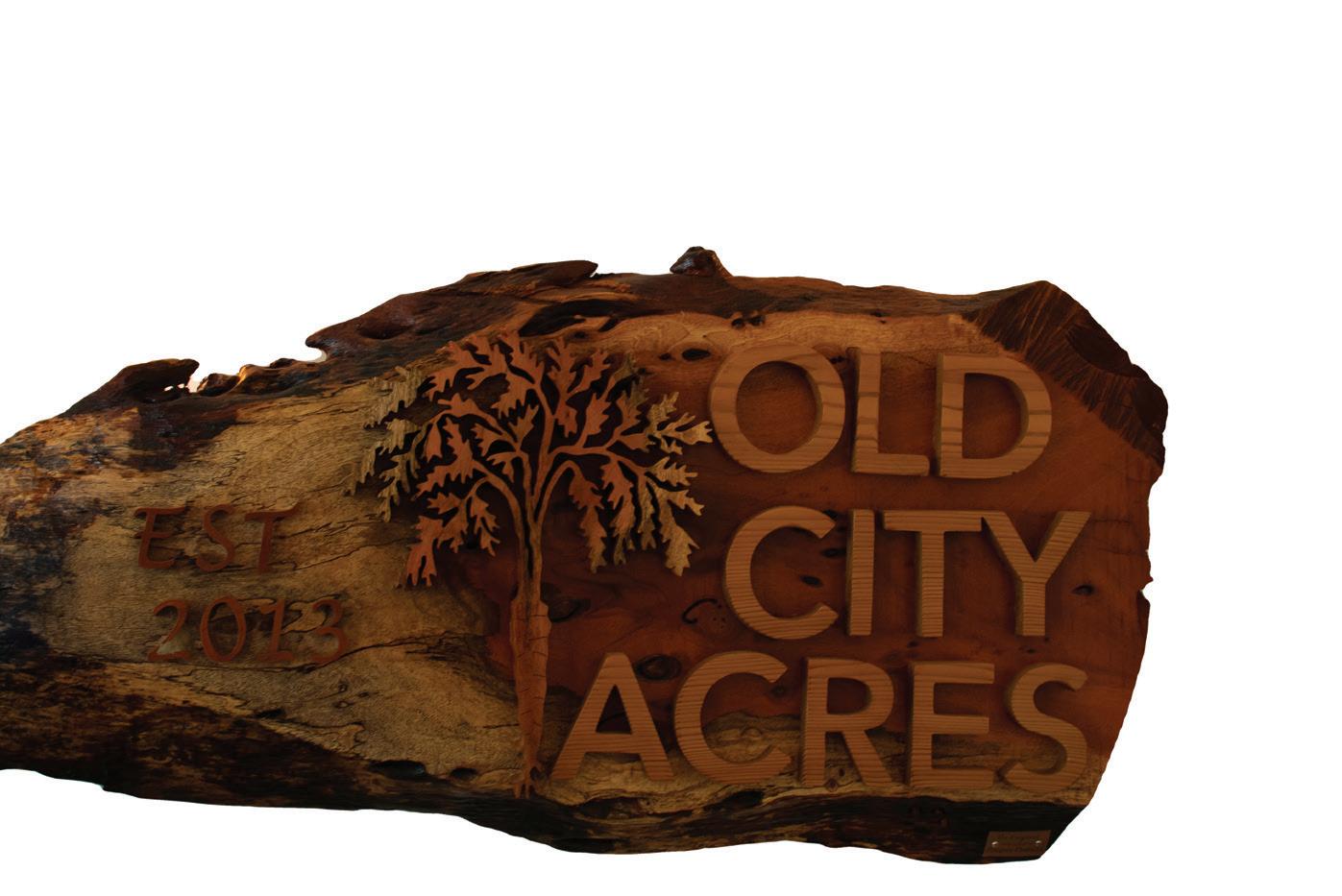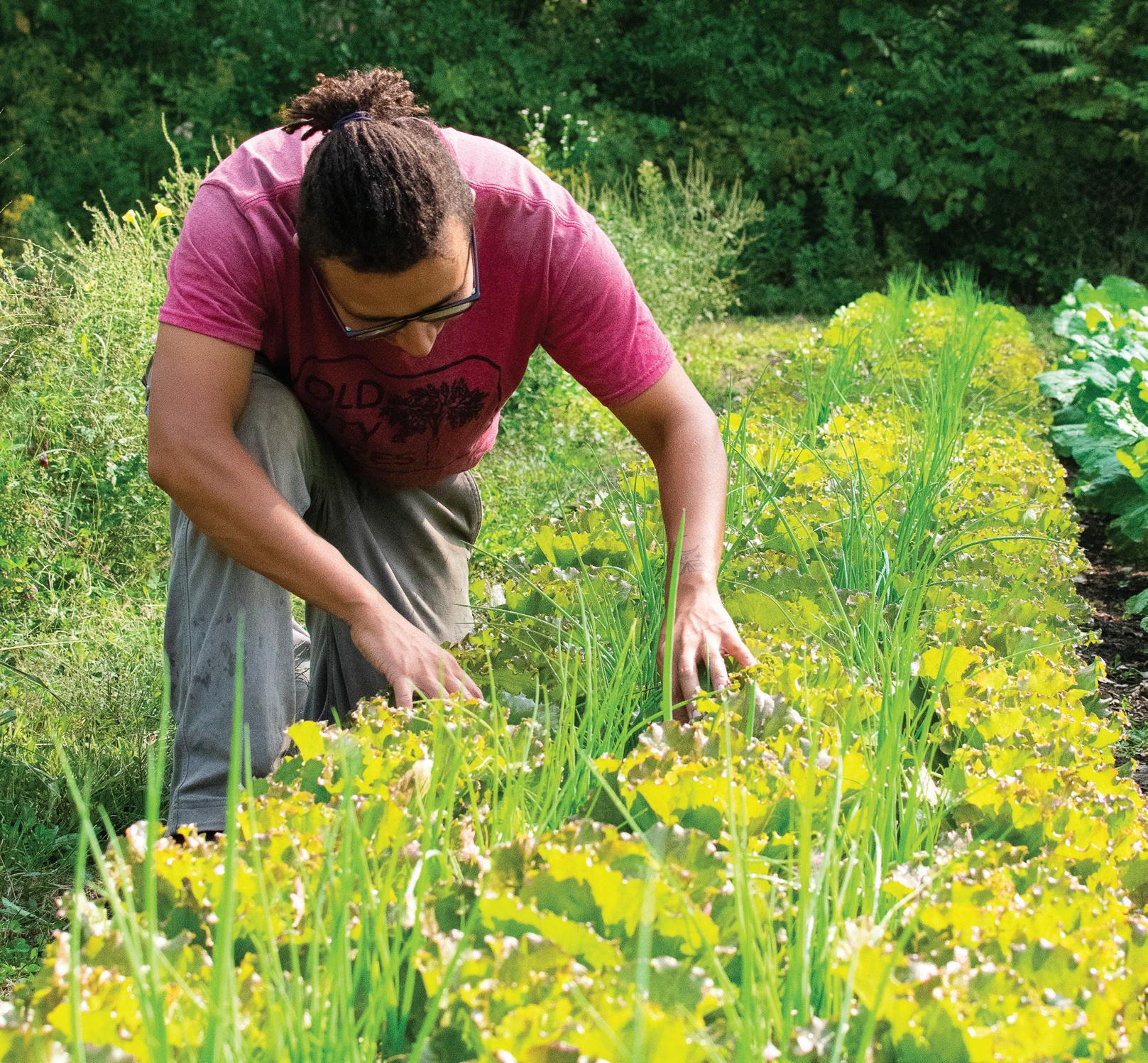
11 minute read
CEO Comments
CEO Comments:
Primed for Fall
WHAT A DIFFERENCE A YEAR MAKES! (AND I’M NOT TALKING ABOUT THE CORONAVIRUS, WHICH I’M SURE WE ARE ALL GETTING TIRED OF HEARING ABOUT AND WISH IT WOULD JUST END!) FROM ONE OF THE WETTEST YEARS ON RECORD FOR MANY PARTS OF OUR TERRITORY LAST GROWING SEASON, TO HAVING SEVERAL AREAS IN MODERATE DROUGHT TO ABNORMALLY DRY MOST OF THIS YEAR, IS QUITE A TURN OF EVENTS. WHILE THERE WILL LIKELY BE RECORD SETTING YIELDS IN MANY PARTS OF MICHIGAN AND WISCONSIN, THE HOT DRY SPELLS (ESPECIALLY IN THE EASTERN PART OF MICHIGAN) WILL TAKE THE BLOOM OFF WHAT WAS STARTING OUT AS A SPECTACULAR YEAR. OF COURSE, THIS CROP ISN’T IN THE BIN YET, BUT HOPEFULLY WE WILL BE BLESSED WITH GOOD HARVESTING CONDITIONS FROM HERE ON AND BE ABLE TO FINISH STRONG.
Ag Economy Barometer
Speaking of differences, the following is a summary of the Purdue University/CME Group Ag Economy Barometer, which I thought provided a good glimpse of how a cross section of farmers across the country are feeling about a number of issues – from trade, commodity yields and prices, to land values and changes in their expectations about equity changes in the upcoming year. The index is up 26 points from July, with a couple of sub-indices recording big improvements. How would you have responded to the survey given your current situation and outlook?
“There was a big improvement in farmer sentiment in August, according to the Purdue University/CME Group Ag Economy Barometer. The index rose to a reading of 144, up 26 points from July. The Ag Economy Barometer is based on survey responses from 400 U.S. agricultural producers. This month’s survey was conducted from August 17 through August 21, 2020. Both of the barometers sub-indices also recorded substantial increases. The Index of Current Conditions improved to a reading of 124, up 13 points from July, while the Index of Future Expectations improved to a reading of 154, up 33 points. Increases in the barometer and its two sub-indices marked the most positive readings since February 2020 when record highs were established and before the pandemic began. The improvement in sentiment was underpinned by expectations for excellent crop yields, as reported in the USDA’s August Crop Production report, and rallies in key agriculture commodity prices that took place this month amidst news of additional export sales to China. Farmers were more optimistic about U.S. agriculture’s trade prospects compared to the past several months. In August, 67 percent of producers said they expect exports to rise over the next five years, compared to just 57 percent who felt the same way during the spring and summer months of 2020. Farmers’ perspectives regarding land values also improved in August. Those expecting land values to increase over the next 12 months rose to 20 percent in August, up from 16 percent in July and 7 percent back in April. The percentage of producers expecting values to increase over the next five years rose to 59 percent, up from 48 percent in July and just 40 percent who expected higher values back in May. Each summer survey respondents are asked their opinion regarding expected changes in farmers’ equity position over the upcoming year. The percentage of respondents in the August 2020 survey who expect equity to decline in the upcoming 12 months was 38 percent. This marked the second lowest percentage since the survey question was first asked in 2016 and was well below a year earlier when 48 percent of respondents said they expected farmers’ equity to decline.” While there is certainly no shortage of uncertainty and volatility in many aspects of our industry, the general economy, or our national politics, this “survey” does indicate that - in general - farmers are optimistic right now about their short- and longerterm future. Whether or not this sentiment holds, it’s nice to see many are at least feeling better and renewing their hope for better times to come, despite the challenges already encountered and that may continue for many months.
Customer Satisfaction
Speaking of farmer sentiment, GreenStone sent out its annual customer satisfaction survey in August. The survey is typically sent in March with results back in July, but with all the uncertainty associated with the pandemic at that time, we delayed. Now that most of us have settled into some new routines, we felt it would be a good time to ask you how well we are meeting your expectations, especially given how we’ve had to change the way we do business with you on a daily basis due to the pandemic. It is one thing to deliver great service when there are few obstacles, but it’s quite another when facing one challenge after another. So, if you are one of this year’s random survey recipients, please take a few minutes to let us know how we are doing and if there is anything we can do differently to better serve your needs!
Politics Aside, Vote!
Finally, this is an important election year and I encourage you all to make sure you take the time to do your research on where the parties and candidates stand on issues important to you. Our democracy is special, and it demands an informed and engaged electorate. Never think that your vote doesn’t count. It is our duty as citizens to ensure the freedoms we enjoy today, secured by those who have fought and sacrificed their lives for them, are preserved for many generations to come. No matter the outcome, I pray we can begin to heal the divisiveness that increasingly separates us as a country. Together, we need to continue to be that “shining light” the world looks to for hope in a better tomorrow.
In closing, I want to thank you for your business and the patience you have shown in working with us, in many cases, much differently than any of us would like during these difficult times. Feel free to reach out to me anytime if I can be of assistance. I hope you enjoy this issue of Partners. As always, our team strives to provide you with a variety of information you can use in not only your business, but daily life as well. Best wishes for a safe and productive harvest!
Dave Armstrong
517-318-4105 dave.armstrong@greenstonefcs.com

A MARKET FARMER Making Slow Magic
METRO DETROIT MARKET FARMER ALEXANDER BALL SUCCESSFULLY CREATED A COMMUNITY SUPPORTED AGRICULTURE (CSA) BUSINESS WITH TWO ACRES OF LAND, A UNIQUE BUSINESS MODEL, SUPPORT FROM HIS LOCAL CUSTOMERS AND A LITTLE HELP FROM GREENSTONE FARM CREDIT SERVICES.

“It’s been insanely hard,” Alex states emphatically, while adding, “But I love the challenge of a ‘slow farming’ business. It fuels me every day. I’m always asking, what can I do next? How can I get better?” Eight years ago, at age 18 and with no previous experience, Alex researched the internet for how-to-farm information and leased some land to begin growing vegetables. The first year on his rented acreage, two gentlemen walked out of the woods and informed Alex that a pipeline was being built across his fields the following season. He didn’t give up, but admits it was a continual struggle to find land to lease over the next four years. Making the decision to finally buy his own land was almost as frustrating. After looking at nearly 50 properties, Alex found two acres of zoned land with affordable taxes, five miles from his home in Romulus – but he couldn’t find a lender willing to finance a small farm.
“I was desperate,” Alex recalls. “No one would give me a loan. I went to the Farm Service Agency for help and they wouldn’t help me, which was really demoralizing. They did tell me to check out GreenStone, so I called and talked to Senior Financial Services Officer Mike Niesyto at the Ann Arbor branch. I emailed him with information about my finances, my website, and my business plan, and a day later Mike said, ‘hey, I like what you’re doing. I think we can work with you!’” “I met Alex in 2017 when he was looking for a lender to finance a two-acre parcel,” recounts Mike. “Early on in the conversation I could tell his passion for agriculture was immense, and he seemed to have really great character. Those subjective measures can really go a long way when a lender is working with a young, beginning or small customer.”
Alex spent the first year as a property owner clearing out lowland forest and getting the acreage in shape while maintaining his greenhouse production. He spent the next two seasons building drainage and irrigation systems, ditches, levees and ponds on what he realized was wet, tired land.
“I was barely making enough to cover my expenses.” Alex says. “I was living below poverty line. But I just had a dream, and I knew the only way to get it done was to get into the field and plant as quickly as possible, with as little debt as possible. I was in the business for the long-term and I told myself, no rush — I was going to take about three or four years and just do it right.” Alex’s Old City Acres farm specializes in small-scale, intensive market gardening. The farm’s returns per acre are relatively high compared to sweet corn production at a large operation, for example, and Ball has found farming year-round under hoops, low tunnels and plastic to be a very solid investment.
Formula for success
It’s not just that Ball tends to his tender winter greens and spring and summer vegetables organically, sustainably and lovingly, as the Old City Acres website states; it’s that Alex has created a community of regular customers eager to support his produce and endeavor. “Oh man, we have a ravenous fan base,” he jokes. By design, he sells flexible, 12-month CSA memberships and delivers vegetables

to just three areas: Romulus, where he grew up and has family and friends who want to buy from him; Ypsilanti, a college town outside of Ann Arbor’s market-saturated reach; and, the rural neighborhood surrounding his own farm. “I’ve really cultivated an awesome following over the last eight years,” Alex says. “I see my customers more like family. And having that customer base has been a lifesaver.
“You only need 50 solid customers with a $20 per week membership. So instead
➡ Opposite page: Alex Ball sells flexible, 12-month CSA memberships and delivers vegetables nearly year-round from crops grown under hoops.
➡ Top of page: Farmer Alex Ball tends to his tender winter greens and spring and summer vegetables organically, sustainably and lovingly raised, as his Old City Acres Farm website states.


of doing a shotgun approach, I’ve been refining my products and cultivating the relationships I have with these people. My customers can choose which vegetables they want to buy, and they can choose their own schedule. Because of our flexibility, we’re attracting a diversity of untapped, younger consumers. It’s a very customer-oriented CSA model. The produce is fantastic, but on top of that, I make sure our service is even better. I quickly realized that if you take care of people, then they are there for you when you need them.” This past March, Alex needed his base of loyal supporters more than ever when the COVID-19 hit Michigan and threatened his business. Overnight, farmers markets shut down and restaurants canceled their wholesale produce accounts. Regrouping, Alex and a couple of friends built an entirely new driveway for the farm and put in a small parking lot. He then installed a self-serve farmstand, complete with refrigerated coolers, in front of Old City Acres farm and opened the doors to capture drive-by business. Ball feels that 2020 has been more difficult than the first tough years on his property, when he was turning a forest into a farm. He believes that COVID-19’s trial by fire forced him to build a solid infrastructure that will help him stabilize his operation for the years ahead. Agile thinking is part of Alex’s formula for success, which also includes developing a niche market with high-quality product, creating a strong and growing community, and providing superior service that reflects the needs of customers.
Growing upward
Ball doesn’t plan to expand to a larger property any time soon. His plan is to grow his farm upward, rather than outward, using his current acreage to its peak capability while running an all-year, greenhouse-aided
➡ Left: Spending the time to ensure his produce is fantastic is important to Alex
Ball, but he knows his service needs to be even better. Alex has quickly realized that if he takes care of his customers, then they will be there for him when he needs them.









